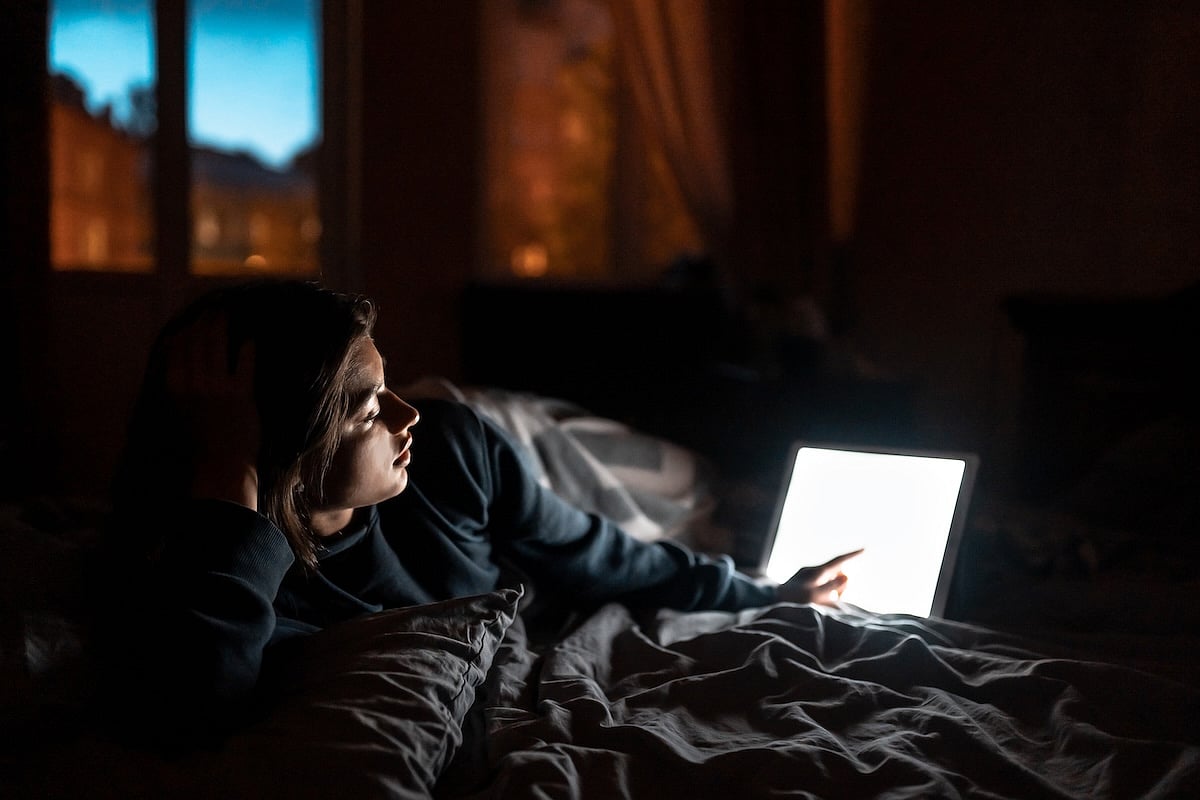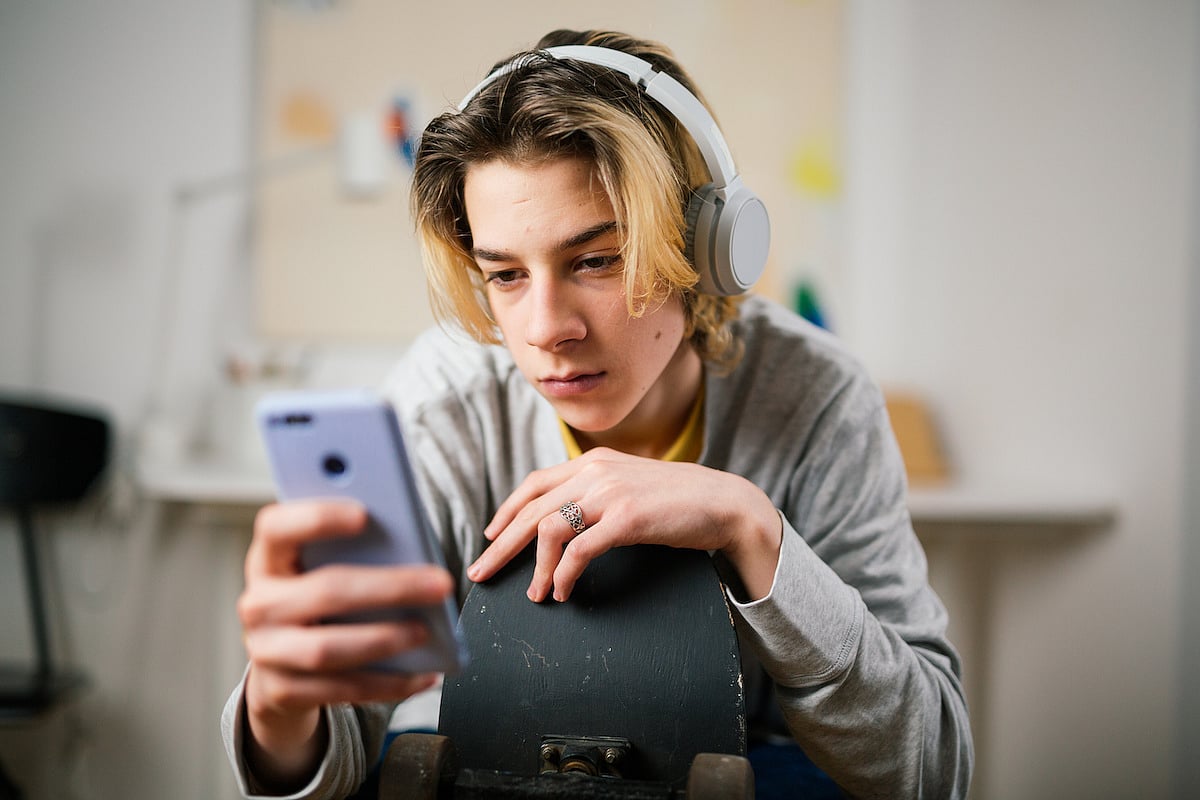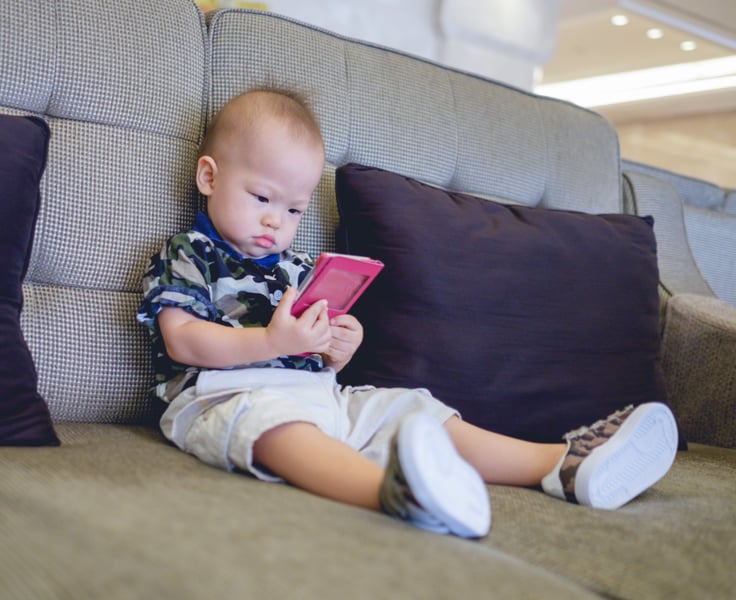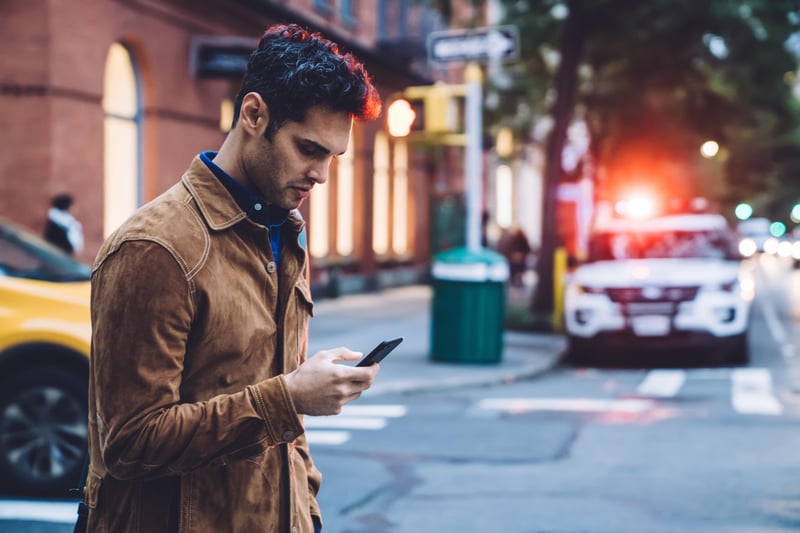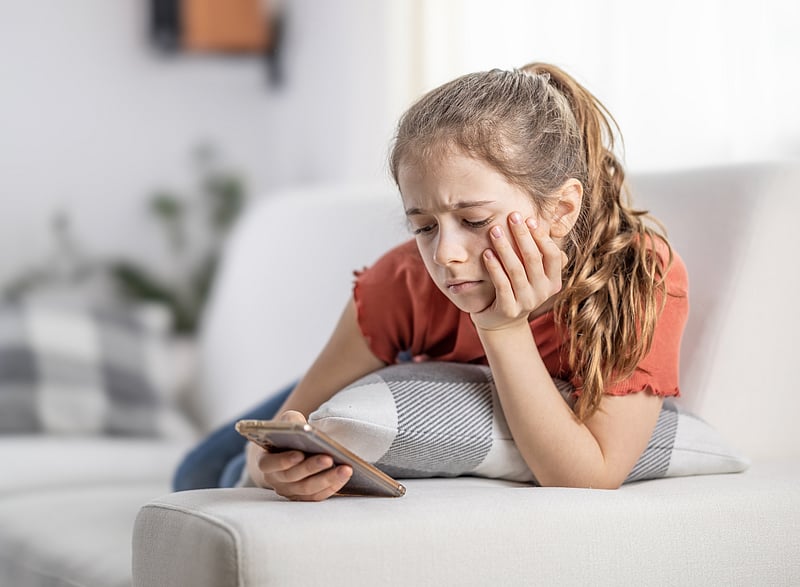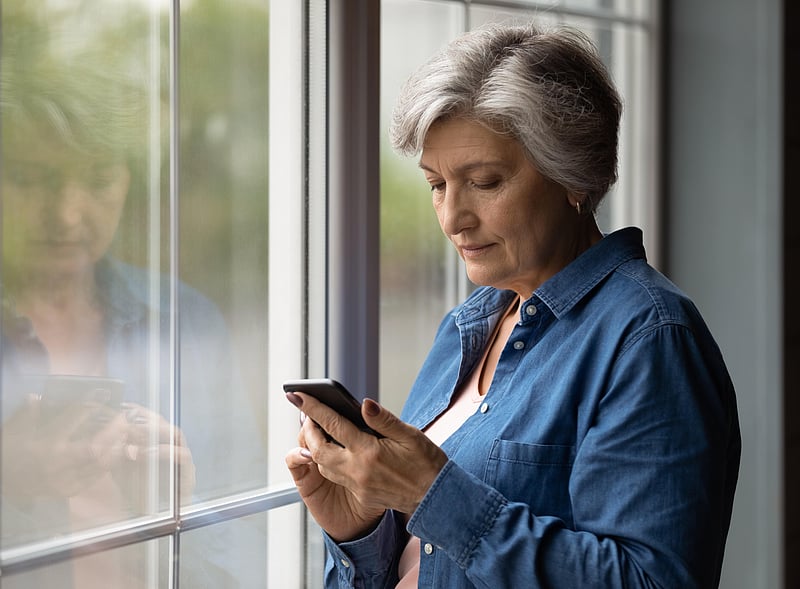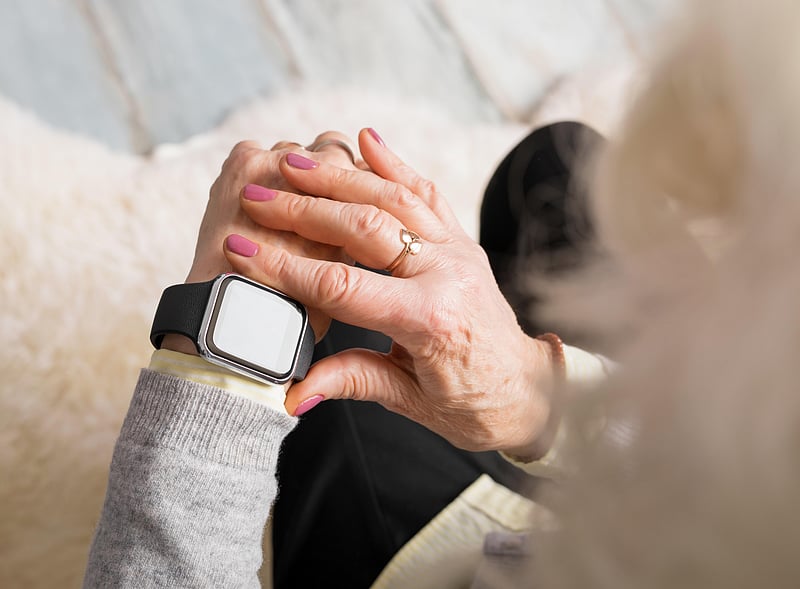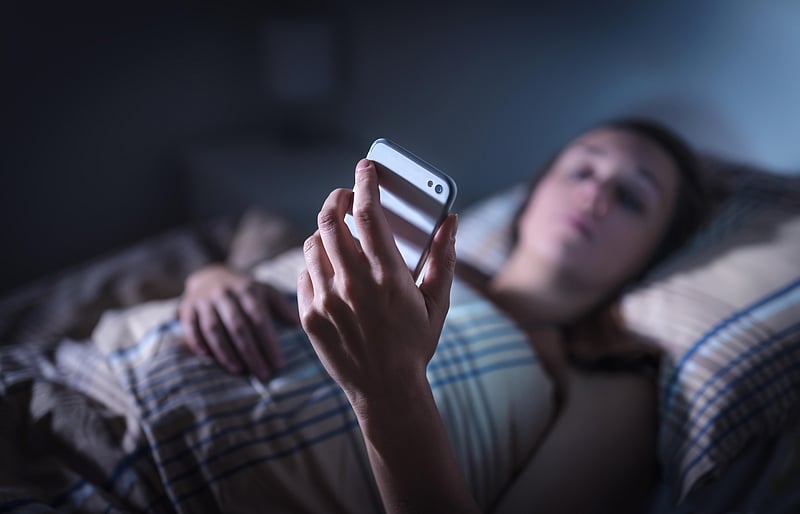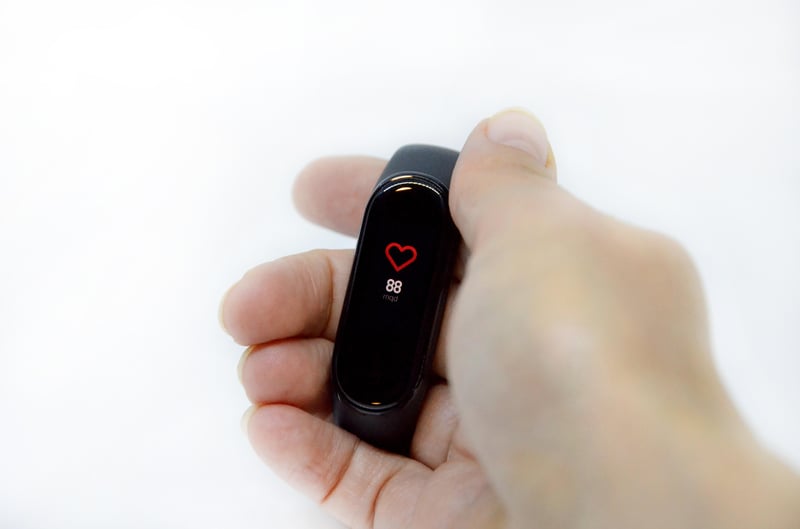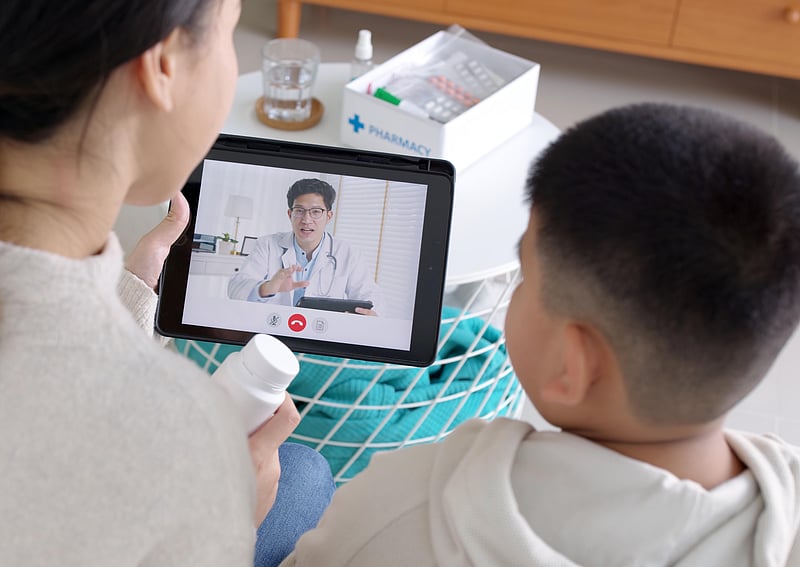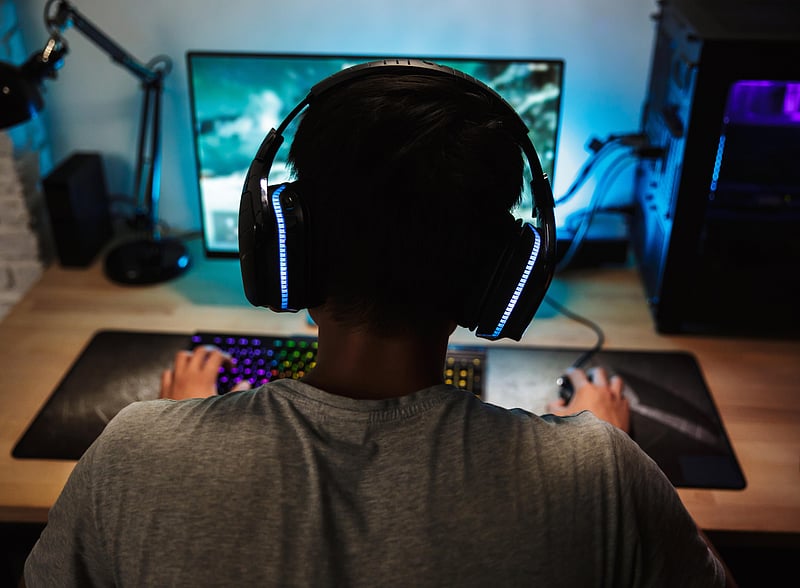Get Healthy!
Results for search "Cellphones".
Health News Results - 31
Can’t get your teenage girl off her smartphone, iPad or laptop?
This could cost her much-needed sleep and increase her risk of depression, a new Swedish study says.
Teenagers who spend more time on screens tend to get worse sleep, both in terms of sleep quality and duration, researchers reported April 2 in the journal PLOS Global Public He...
- HealthDay Reporter
- Dennis Thompson
- |
- April 3, 2025
- |
- Full Page
Yikes! The way parents use their phones around their kids may influence how much inappropriate content kids consume.
Researchers reported Feb. 4 in the journal BMC Pediatrics that the odds of kids watching R-rated movies or playing mature-rated video games rose with higher parental screen use a...
- HealthDay Reporter
- India Edwards
- |
- February 5, 2025
- |
- Full Page
In news that should reassure folks glued to their cellphones all day, a new international review finds no link between cellphone use and brain cancer.
Commissioned by the World Health Organization (WHO), the review included 11 experts from 10 countries who sifted through decades of research -- 5,000 studies published between 1994 and 2022 to be exact. The final analysis was just publ...
- HealthDay Reporter
- Robin Foster
- |
- September 4, 2024
- |
- Full Page
Your cellphone might be harming your heart, a new study warns.
People who regularly use a cellphone have a higher risk of heart disease, researchers found in a large-scale study.
And the more time someone spends on their phone, the greater their risk f...
- HealthDay Reporter
- Dennis Thompson
- |
- September 4, 2024
- |
- Full Page
Too much screen time can lead to developmental delays in babies, researchers say.
When 1-year-olds viewed screens for more than four hours a day, they had delays in communication and problem-solving skills when assessed at ages 2 and 4, according to a new study published Aug. 21 in
- HealthDay Reporter
- Cara Murez
- |
- August 22, 2023
- |
- Full Page
It seems obvious that texting and walking can be a dangerous duo, but now a new Australian study offers solid evidence of the dangers.
Emergency room doctors Dr. Michael Levine and Dr. M...
- HealthDay Reporter
- Sarah D. Collins
- |
- August 9, 2023
- |
- Full Page
Summer vacation has begun for some families and screen use may already feel like too much.
A psychiatrist from Baylor College of Medicine in Houston offers some tips for making sure smartphones and tablets are put to good use and not used to excess.
Dr. Laurel Williams, a professor in the dep...
- HealthDay Reporter
- Cara Murez
- |
- June 5, 2023
- |
- Full Page
Teens need their sleep, and a new study sheds light on one way to help them get it: Keep cellphones and screens out of the bedroom.
"Getting enough sleep is crucial for teenagers because it helps their body and mind grow and develop properly,"said lead author Dr. Jason Nagata, an assistant professor of pediatrics at the ...
- HealthDay Reporter
- Cara Murez
- |
- May 30, 2023
- |
- Full Page
Texting and driving can be deadly. Holding your phone in your hand to talk and surfing the internet while behind the wheel is dangerous, too.
This is widely known, but a new survey finds that about half of all respondents still use an electronic device most or every time they drive.
"I'd say...
- HealthDay Reporter
- Cara Murez
- |
- April 3, 2023
- |
- Full Page
If you spend hours a day scrolling on your smartphone or tablet, you might get "tech neck."
"Humans are upright creatures, and our bodies aren't designed to look down for long periods of time, which puts extra pressure on the cervical spine,"said Dr. Kavita Trivedi,
- HealthDay Reporter
- Cara Murez
- |
- February 17, 2023
- |
- Full Page
A high number of preteens and teens in the United States have viewed pornography and many have also sent or received nude or seminude photos -- sexting -- over their smartphones, a new study reveals.
"The prevalence rates we found in this study suggest that school counselors must be prepared to talk about sexting and pornography use with students, and to change the narrative about these...
- HealthDay Reporter
- Cara Murez
- |
- December 7, 2022
- |
- Full Page
That smartphone in your hand could be triggering your allergies, a new study by an 18-year-old high school student suggests.
A science fair project by Hana Ruran, of Hopkinton, Mass., found that cellphones are often loaded with cat and dog allergens, bacteria and fungi.
"I have my phone always with me. It's always in my hand. I never put it down for anything,"said study author Hana...
- HealthDay Reporter
- Cara Murez
- |
- November 10, 2022
- |
- Full Page
Danger on the road: Speeding and texting while driving are two common but risky behaviors among teens, a new study finds.
Among teen drivers in the study, researchers found they drove over the speed limit on 40% of trips and held cellphones more than 30% of th...
- HealthDay Reporter
- Steven Reinberg
- |
- October 7, 2022
- |
- Full Page
A new smartwatch could be a key player in preventing heart attacks among people suffering from risky heart conditions, a new study claims.
Using the smartwatch to track their heart health, patients in a home-based cardiac rehab program were more than 20% less likely to land in the hospital t...
- HealthDay Reporter
- Dennis Thompson
- |
- August 30, 2022
- |
- Full Page
A smartphone video could detect a blocked blood vessel in your neck that could cause a stroke, a new study suggests.
The American Heart Association says videos may provide a non-invasive way to screen people who are at risk of stroke.
Nearly 87% of strokes are the ischemic type, which happens when fatty depos...
- HealthDay Reporter
- Cara Murez
- |
- August 17, 2022
- |
- Full Page
Most parents are overlooking simple steps to protect their kids' eyes from overexposure to electronic screens, a new nationwide poll shows.
One in 7 respondents said their 3- to 18-year-olds haven't had a vision test in two years. Yet half of respondents acknowledged that screen time has a big imp...
- HealthDay Reporter
- Ellie Quinlan Houghtaling
- |
- July 18, 2022
- |
- Full Page
Are you plagued by FOMO -- "fear of missing out"? Then silencing your smartphone may not be the stress-buster you think it is.
That's the takeaway from a new study that found many folks check their phones a lot more when they're set to mute or vibrate than when they beep and ring.
"Without any clear 'buzz' or sou...
- HealthDay Reporter
- Denise Mann
- |
- June 27, 2022
- |
- Full Page
Fitness trackers can tell you how well you're sleeping, how fast you're walking and, of course, how many steps you've taken.
But during the pandemic, researchers have also investigated the ability of smart watches to help detect COVID-19 or provide data on recovery.
The latest study uses several measures of heart rate data to help track the progression of symptoms in someone wh...
- HealthDay Reporter
- Cara Murez
- |
- April 19, 2022
- |
- Full Page
With the advent of smartphones came the rise of selfies, shared daily by "like"-seeking millions across social media.
But a small new study suggests that, unlike photos taken with regular cameras, smartphone selfies distort facial features in a not-so-flattering way. And those unappealing - if inaccurate - results may be fueling a hankering for
Alexa can already play your favorite song or tell you whether it is going to rain, but soon you may also be able to tell the popular voice assistant to contact a doctor for health issues.
The service from Amazon and telemedicine provider Teladoc Health will be available around the clock on Amazon's Echo devices, the Associat...
- HealthDay Reporter
- |
- March 1, 2022
- |
- Full Page
Mobile health apps can help older Americans but only about four in 10 use them, and those most likely to benefit are least likely to take advantage of them, a new survey reveals.
Health apps monitor everything from calories and exercise to blood pressure and blood sugar to help users manage chronic conditions or achieve health goals.
"Now that most older adults have at least one mob...
- HealthDay Reporter
- |
- February 14, 2022
- |
- Full Page
It's crucial to keep preschoolers away from screens and other sources of light in the hour before bedtime if you want them to get a good night's sleep, researchers say.
That's because even a little bit of light exposure can trigger a sharp drop in the sleep-promoting hormone melatonin, according...
- HealthDay Reporter
- Robert Preidt
- |
- January 31, 2022
- |
- Full Page
Chatting with your doctor via video about your health issues works just as well as an in-person office visit, at least when it comes to managing chronic illnesses, a new review suggests.
Replacing office visits with video checkups delivered results that were just as effective for patients being treated for conditions like diabetes, respiratory illnesses, chronic pain, heart problems and n...
- HealthDay Reporter
- Dennis Thompson
- |
- January 3, 2022
- |
- Full Page
Parents, think you have a good handle on how much time your teens are spending on social media?
Don't bet on it. New research suggests your best guesstimate is likely way off.
Parents significantly underestimated their teens' social media use -- especially girls' -- during the first year of the COVID-19 pandemic, the study showed.
"Although most parents and their teens spent ...
- HealthDay Reporter
- Robert Preidt
- |
- December 23, 2021
- |
- Full Page
People with depression symptoms might find some help from online programs or smartphone apps -- but the human component remains key, a new research review suggests.
Not everyone with depression can readily get to face-to-face therapy -- whether due to time, distance, money or stigma. But smartphones are n...
- HealthDay Reporter
- Amy Norton
- |
- December 14, 2021
- |
- Full Page
Despite stereotypes about seniors and technology, a small study suggests that older adults in the early stages of dementia can use smartphone apps as memory aids.
The researchers found that older people with mild impairments in memory and thinking were not only able to learn how to use the apps, they said the digital aids made their daily lives easier.
The apps were not specially de...
- HealthDay Reporter
- Amy Norton
- |
- November 18, 2021
- |
- Full Page
As teens dramatically stepped up their screen time during COVID-19 lockdowns, their well-being took a hit, a new study reveals.
Recreational screen time among U.S. teens doubled from before the pandemic to nearly eight hours per day during the pandemic, according to the report. And this estimate doesn't include time spent on screens for remote learning or schoolwork, so the total was like...
- HealthDay Reporter
- Steven Reinberg
- |
- November 2, 2021
- |
- Full Page
After a heart attack, a smartwatch app may help keep patients from being hospitalized again, researchers say.
The app helps patients keep track of medications and make lifestyle changes. It may also reduce rehospitalization in the month after discharge by half, according to a new report.
The American Heart Association says one in six heart attack patients returns to the hospital wit...
- HealthDay Reporter
- Steven Reinberg
- |
- September 27, 2021
- |
- Full Page
Do you have an implanted defibrillator or pacemaker? Try keeping your smart watch or smart phone a few inches away from them.
New research from the U.S. Food and Drug Administration finds that your phone or watch could interfere with implanted heart devices.
Based on the new findings, heart patients and health care providers should be aware of potential risks, the research team...
- HealthDay Reporter
- Ernie Mundell and Robert Preidt
- |
- August 26, 2021
- |
- Full Page
You've heard the warnings about kids who are forever glued to their screens, but all that screen time can have devastating health effects for grown-ups.
If you're under 60, too much time using a computer, watching TV or reading could boost your risk for a stroke, Canadian researchers warn.
"Be aware that very high sedentary time with little time spent on physical activity can have a...
- HealthDay Reporter
- Robert Preidt
- |
- August 23, 2021
- |
- Full Page
Want to see a temperamental tween or teen act happier?
The formula is simple, a large international study suggests.
"Screen time should be replaced by 'green time' for optimizing the well-being of our kids," said study author Asad Khan, an associate professor in biostatistics and epidemiology at the University of Queensland in Brisbane, Australia.
That advice stems from survey...
- HealthDay Reporter
- Denise Mann
- |
- August 16, 2021
- |
- Full Page
